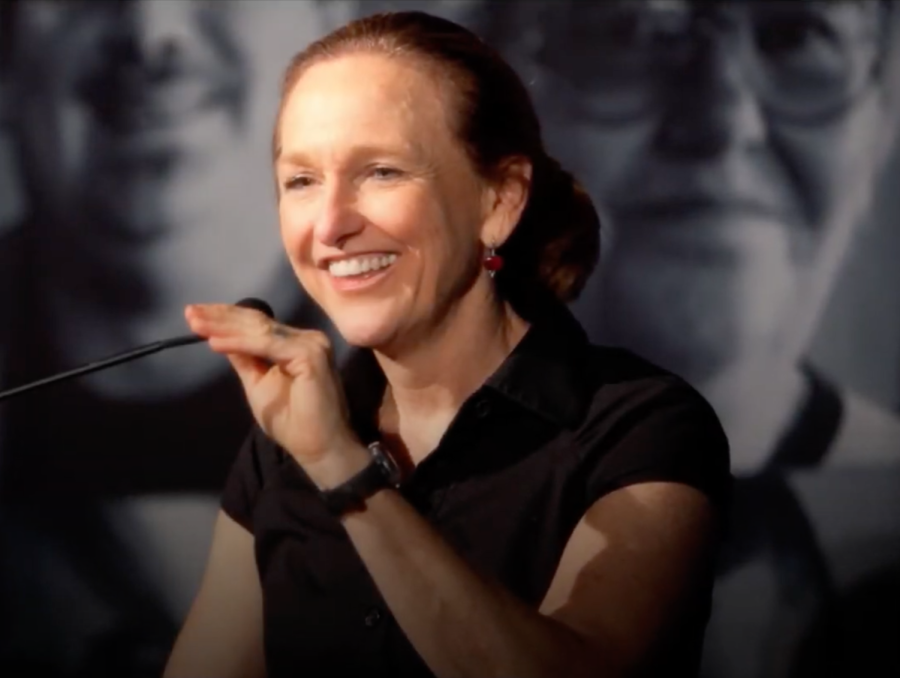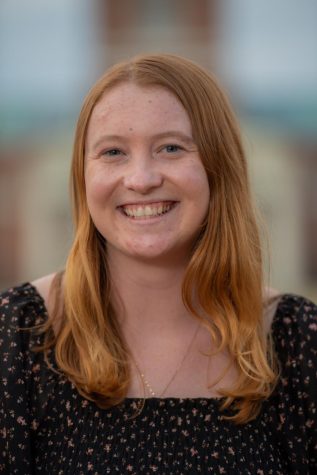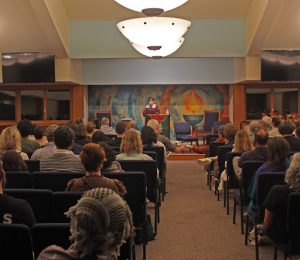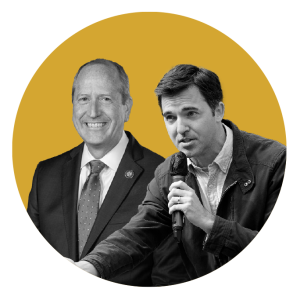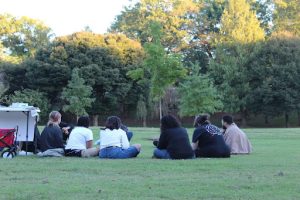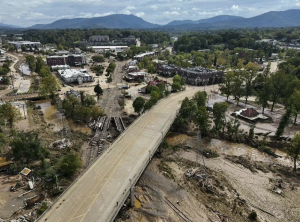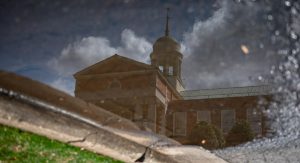To Noe and love
Commencement speaker Killian Noe, shares the importance of being known and loved in community
K. Killian Noe is the founder of the Recovery Café Network.
May 15, 2023
Killian Noe arrived at work one day at Recovery Café to find a man sitting alone on the front steps. She knew the man because he frequents Recovery Café, a community space she founded that helps people maintain recovery. She also knew he just relapsed and was shocked to find him back so soon. People who relapse often take a while to return to recovery programs.
“How is it that you’re able to come back so soon?” she asked him.
“It’s the first time in my life I knew a group of people cared whether I came back,” he said.
In her 20 years of directing Recovery Café, Noe has not forgotten this story. This man is just one of the hundreds of people who have a similar story of finding love and belonging at a Recovery Café.
Noe founded Recovery Café in 2003 just a few years after she moved to Seattle, Wash. from Washington, D.C., where she had founded a recovery ministry called Samaritan Inns. Consistent, closely-supported consumers at the café are called “members,” and they are on a recovery journey. Recovery Café helps them sustain recovery and reduce relapse by providing resources like free meals, access to a computer lab, accountability groups, courses and 12-step meetings. In return, members commit to participating in accountability groups, contributing to the café and being drug and alcohol free 24 hours before entry. The café’s driving principle is that every human life is precious regardless of trauma, mental health struggles, addictive behaviors or past mistakes. Recovery Café exists to be a welcoming community to those often left on the margins.
Finding and creating spaces where people are known and loved has been a connecting theme through Noe’s life, beginning when she was a child, continuing when she attended Wake Forest and remains her mission today as she continues to direct Recovery Café.
Finding Community
Noe grew up in the small town of Brevard, N.C., a little more than 30 miles south of Asheville. Her father was a Baptist minister, and as the preacher’s kid, everyone knew who she was. At her church, she experienced being in a community where everyone was known and loved, and she knew she wanted to seek that out for the rest of her life.
“To be known without being loved, is a terrifying thing,” Noe said. The ease and confidence with which she imparted these words gave the impression that it’s like a mantra for her. “And to be just loved, without really being known, doesn’t have a lot of power to transform; it’s superficial. To be both known and loved, that’s a powerful thing.”
Noe went on to attend Wake Forest University. Being a Demon Deacon ran in her family, with her dad and sister both having attended. She joined the cross country team and experienced a deep community with her teammates.
After Wake Forest, Noe spent a few years doing volunteer work in the Middle East. There, she observed the opposite of the loving communities she experienced during her life, but it made her want to pursue accountability and reconciliation all the more.
“The level of animosity across divides in the Middle East was not only heartbreaking, but it was also a good reminder that we must guard our hearts against hatred,” Noe said. “It made me want to be in a community that would hold me to forgiveness, hold me to reconciliation and hold me to loving my enemies.”
Two Brokenhearted People
When Noe moved to Seattle in 1999 with her husband and two children, she wanted to continue the type of work she had started in Washington, D.C., with Samaritan Inns. She began asking local nonprofit leaders what was missing in the city.
Like many American cities, affordable housing was an issue in Seattle, but Noe determined that one of the city’s most significant problems was that there was no place for people to undergo adequate, long-term recovery.
“What I heard over and over again is that people need places where they can heal and recover from substance use disorder and other mental health challenges,” Noe said. “Even when they get housing, if they don’t have that, housing may become just a revolving door.”
Noe’s friend Ruby Takushi had also recently moved to Seattle, and Noe would tell her about all of Seattle’s needs.
“It’s heartbreaking,” Noe told Takushi one day.
“It breaks my heart too, Killian,” she responded.
Noe said that’s when she knew they were in trouble.
“Because when there’s two brokenhearted people, I knew at that moment that we had to jump into the fray,” Noe said.
Takushi helped Noe found the café and became program director. The two have been at it ever since.
“We’ve watched each other’s kids grow up, and we’ve watched these cafés spread across the U.S.,” Noe said. “Sometimes we look at each other and say, ‘How did we get so blessed as to be a part of this?’”
There are now 57 Recovery Cafés across the country, including a location in Greensboro, N.C., that plans to open in September. The Greensboro location is being led by Frank Dew, a retired Presbyterian minister and long-time friend of Noe. Dew met Noe in Washington, D.C. while visiting the church she attended. He said: “Once you meet her, you don’t forget her.” As he works to start his own café, Dew has deeply benefitted from Noe’s experience and leadership.
“By knowing her, I had a great deal of trust that anything that she would help start would have integrity and compassion,” Dew said. “What really impresses me about Killian is her persistence in trying to develop a model that could work, and I’ve been extremely impressed by the thoroughness of the training, preparation, accountability and love that comes through the Recovery Café model.”
The Love Inside
Not all days are filled with joy; some prove to be quite trying. What keeps Noe going on those days is the people the café serves and the purpose with which they live their lives.
“What drew me to people choosing a recovery journey is that it is an inward journey,” she said. “It’s a spiritual journey. And that takes so much intention and rigor. And that’s the way I want to live my life. I want to live it with intention and vigor.”
From listening to her stories and seeing the impact of Recovery Café, it is evident that intention and vigor have marked Noe’s life and Recovery Café. Noe described the cafés as being a place of connection. People connect over sadness or loss but sometimes joy, too. People find joy in contributing to the café and its larger mission. There’s laughter and lots of love.
One day, the executive director arrived at the café and found a woman with her hands pressed against the café’s brick wall as if she were warming her hands on it. The director asked if she was okay, she said yes. She was just trying to connect with the love she felt while inside.


